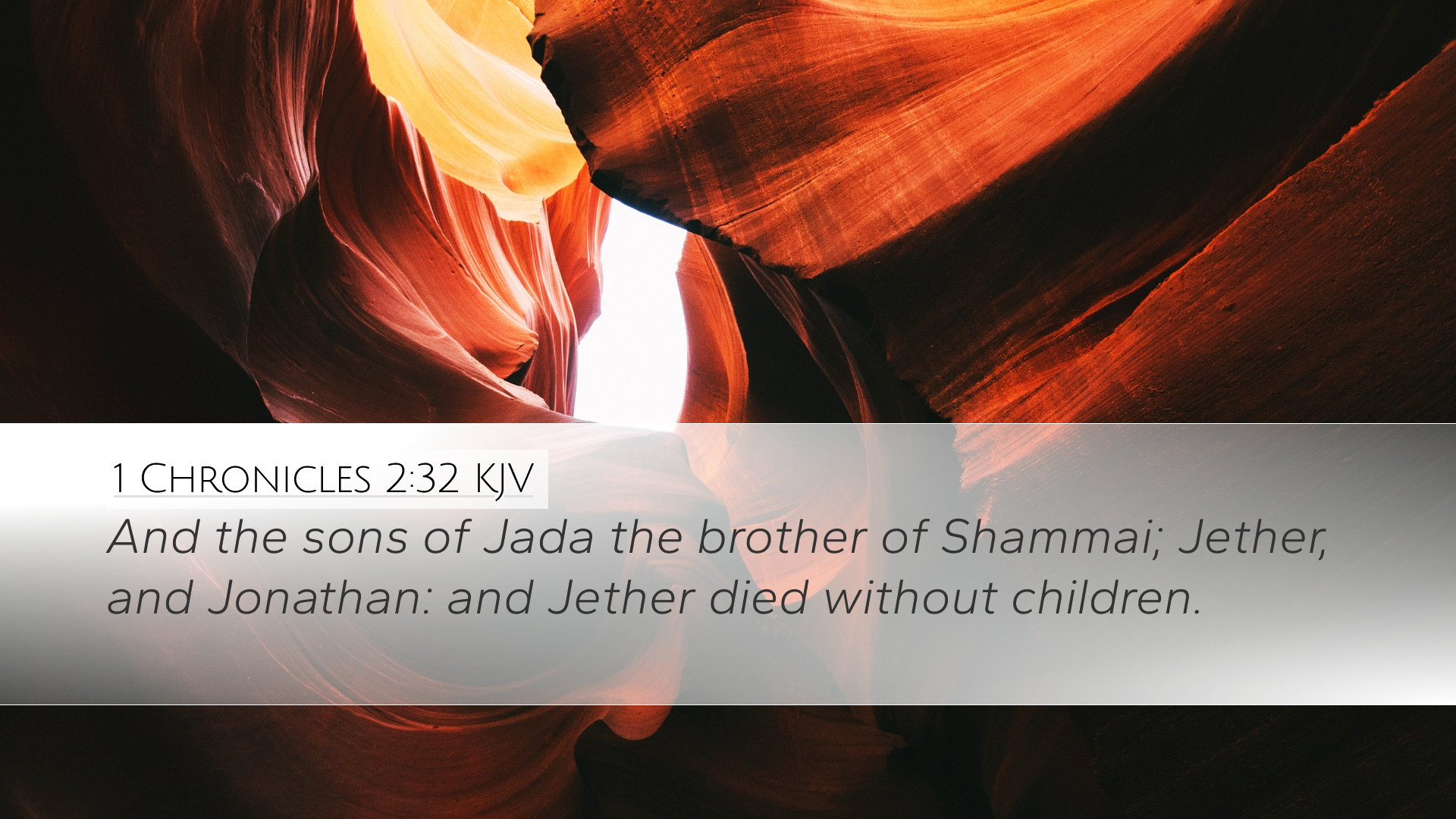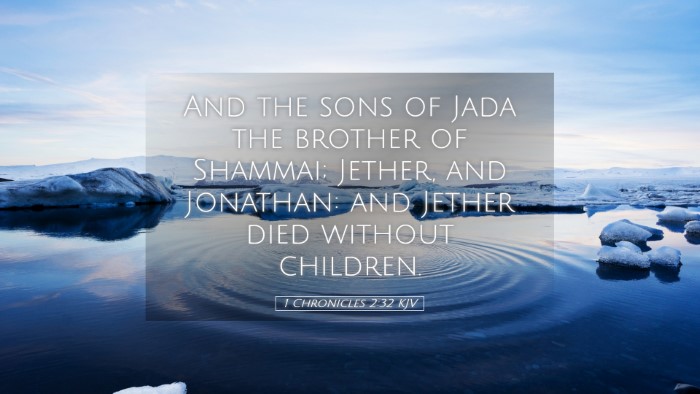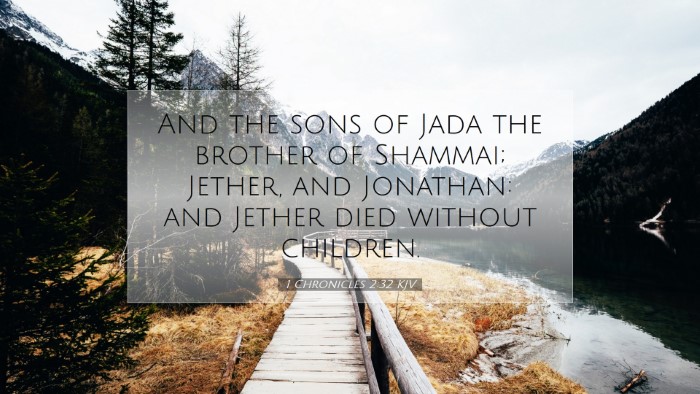Commentary on 1 Chronicles 2:32
1 Chronicles 2:32 reads: "And the sons of Kahat; Amram, and Izhar, and Hebron, and Uzziel." This verse introduces one of the most significant families in the history of Israel—the family of Kahat. The narrative touches upon genealogies that serve to illuminate both the history and the spiritual legacy of the tribes of Israel.
Contextual Background
The genealogies in 1 Chronicles serve several purposes. They establish the historical context of Israel, affirm the covenant promises of God, and highlight the priestly and kingly lineages crucial for understanding the development of Israel as a nation. The descendants of Kahat, one of the sons of Levi, held significant roles in the service of the Tabernacle, and later the Temple, emphasizing their important status in Israel's religious life.
The Family of Kahat
The genealogy of Kahat is foundational. According to the commentators:
-
Matthew Henry:
Henry comments on Kahat’s lineage and expresses how these familial lines were not just historical records but were laden with spiritual significance. The sons of Kahat, including Amram, were entrusted with the care of the most sacred artifacts of worship, reflecting their spiritual significance.
-
Albert Barnes:
Barnes notes that the mention of Kahat’s sons serves to highlight the Levitical priesthood, which derived from this family. It illustrates God’s intention for this tribe to be set apart for sacred duties which reveal the holiness of God and the proper way to approach Him. Each son represents a distinct lineage, thereby setting the foundation for the future temple services.
-
Adam Clarke:
Clarke elucidates the etymology and significance of names within this lineage. He emphasizes that Amram, for instance, translated as "exalted people," indicates a higher calling and purpose, further suggesting that the roles they played were preordained by divine providence.
The Spiritual Significance
The commentary emphasizes that genealogies are more than mere lists. They serve a theological purpose, establishing God's sovereign choices throughout history. By analyzing the lineage of Kahat:
-
The Holiness of God:
The lineage of Kahat points to the necessity of holiness for those who approach God. This becomes crucial when reflecting on the role of the Levites in leading others to worship. Their tasks were not only practical but also symbolic of a deeper spiritual reality.
-
Divine Providence:
The text reveals the continuous thread of God's providential care throughout generations. The mention of specific names and their roles serves to amplify God's plan for redemption, notably as the descendants of this lineage would one day connect to Jesus Christ.
Lessons for Today’s Believers
In contemplating 1 Chronicles 2:32, contemporary believers can derive several essential lessons:
-
The Importance of Legacy:
Each name in the genealogies has its story and significance. This calls on contemporary followers of Christ to consider their spiritual legacy and the impact they have on future generations.
-
Service to God:
Just as the sons of Kahat were dedicated to sacred duties, believers today are reminded of their own call to serve and sanctify their lives in dedication to God’s purposes. Everyone has a role in the body of Christ.
-
Understanding God’s Holiness:
This verse asserts the call to holiness that every believer is to embrace. It serves as a reminder that God’s unique nature demands respect and reverence, encouraging believers to draw near to Him with a clean heart.
Conclusion
In summary, 1 Chronicles 2:32 serves as a reminder of the heritage and spiritual responsibilities that come with being part of God's chosen people. Insights from the esteemed commentators—Matthew Henry, Albert Barnes, and Adam Clarke—bring depth to the understanding of Kahat's family and their significance within the broader narrative of Scripture. It calls contemporary believers not only to appreciate their rich spiritual heritage but to actively live out their role in God’s continuing story of redemption.


